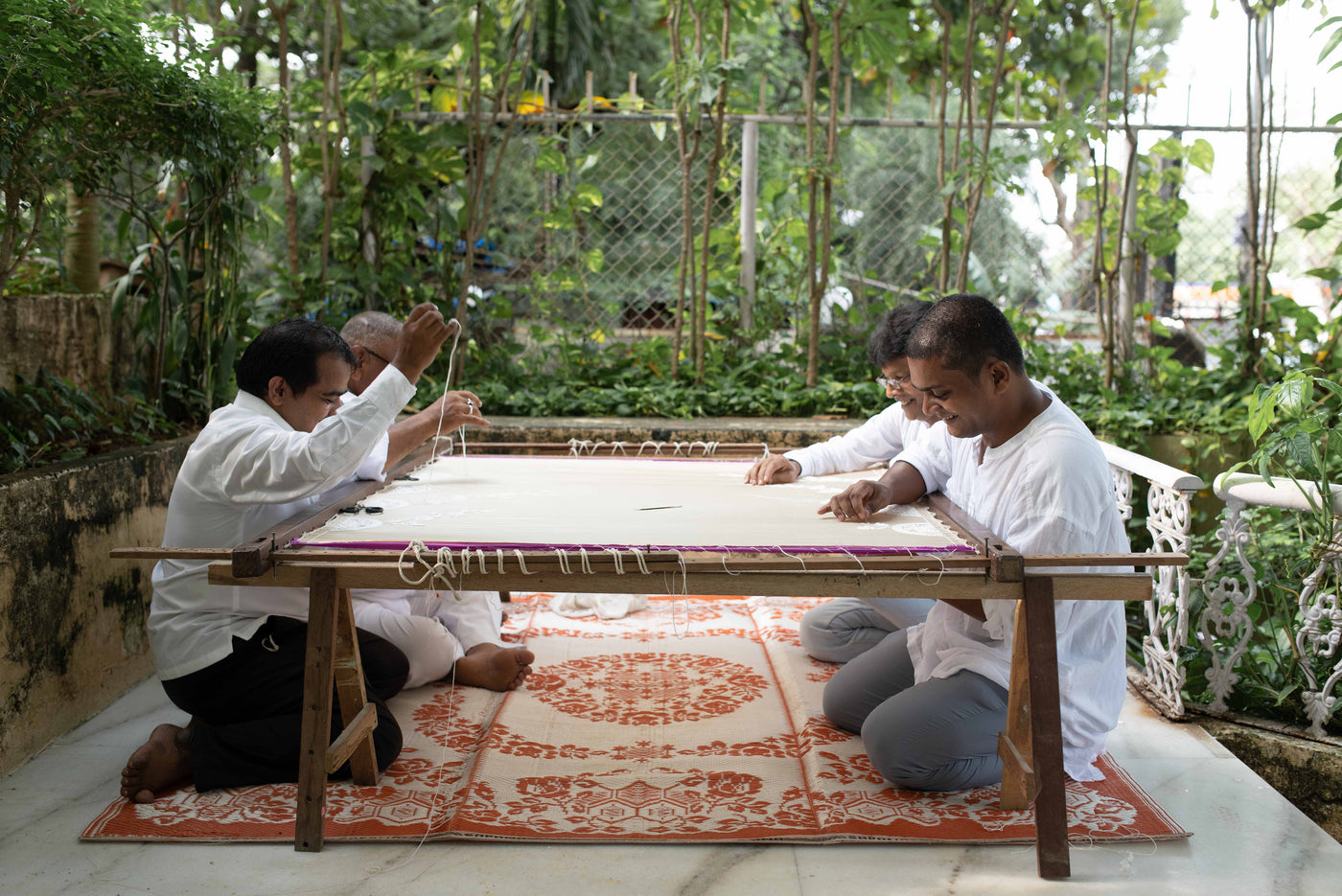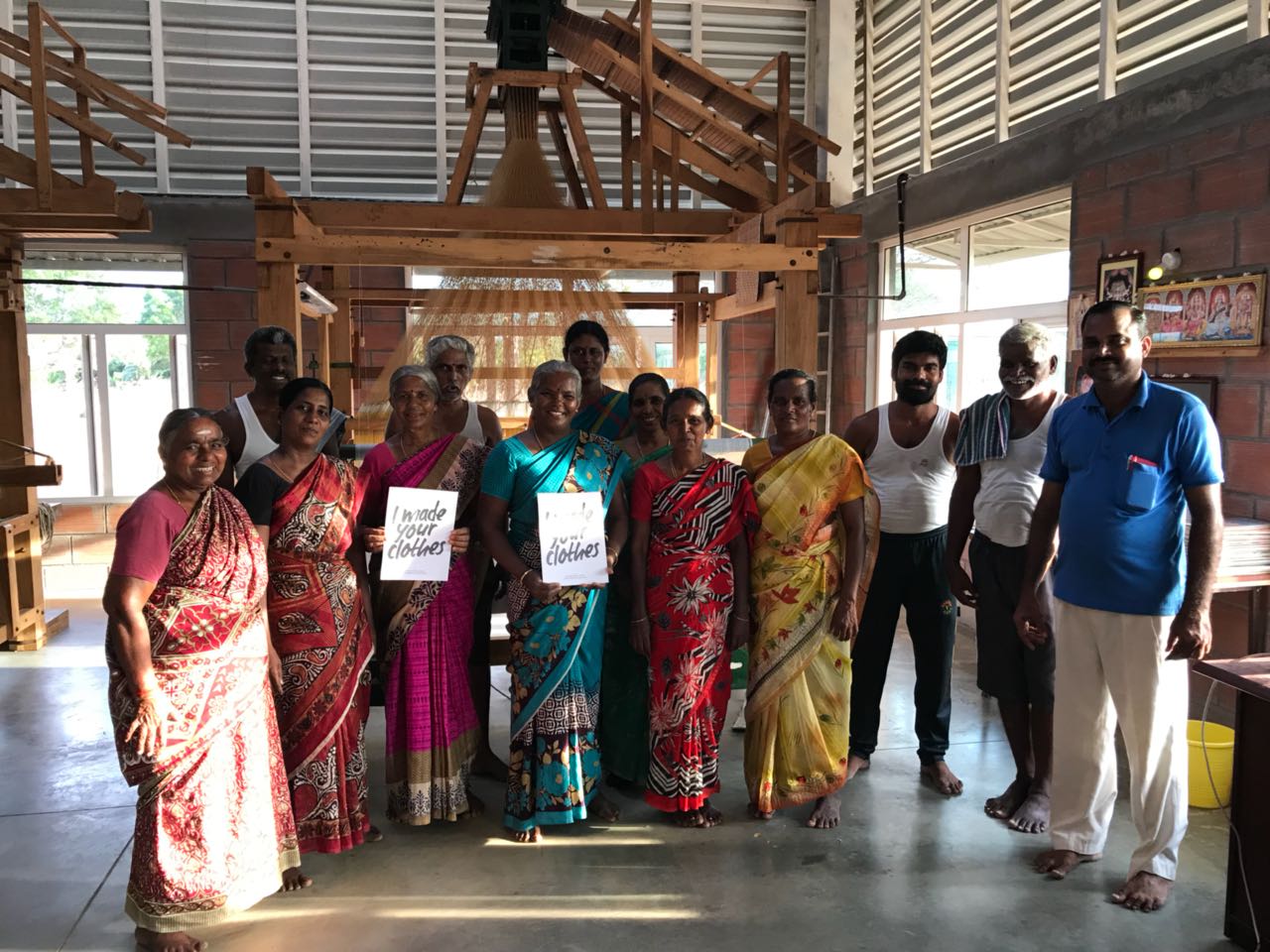
In Mumbai lies a small workshop where many of our organic cotton and silk pieces are handcrafted and hand-embroidered, such as our signature Frangipani Dress and the Touba Dress. Showcasing traditional Zardozi embroidery, these artisans hand-stitch every detail with the most meticulous and skilled hands.
Many of our pieces take many days to embroider, making them highly coveted and wearable works of art designed to be treasured for years to come. Each garment is paired with a personal story woven into every thread. Promoting fair wages and a clean, safe and positive working environment means artisans like Feroz and Alfaz feel respected and are able to bring their exquisite skills to the rest of the world.

Many of our unembellished pieces are made in small workshops in Mumbai, India, guided by an ethical fashion social enterprise. The tailors are paid fair wages and work in clean, safe, and positive working environments.
We are very pleased to be able to contribute to these small businesses by creating sustainable employment options.

In Tamil Nadu, Southern India, we work with an NGO that has revived ancient weaving traditions in the region. The organisation has revived one of the last remaining traditional mills of its kind, producing handwoven and hand-loomed organic cotton fabrics for us.
The handloom sector is one of the major symbols of Indian cultural identity and it continues to be an important source of livelihood., especially for women, who form around 70% of weavers. At the cooperative, 50 artisans are employed using ancient weaving techniques specific to Southern India.

Prior to crafting, this organic cotton is grown using methods and materials that have a low impact on the environment with systems in place to replenish and sustain soil fertility, reduce the use of toxic and persistent pesticides and fertilisers and build biologically diverse agriculture. These specialist weavers continue to impart their knowledge of the handloom sector with the use of premium and utility weaves and help us shine a light on traditional craftsmanship.
The local village has thrived as a result of the revival of weaving traditions. The organization has also partnered with a local women’s embroidery cooperative of Lambadi women, that produces our Frangipani embroidered dresses for us. Their story is such that several hundred years ago the nomadic Lambadi tribe migrated far from North-Western India down south. The women in the community had a rich tradition of hand embroidery, but as time went on the Lambadi women stopped wearing traditional clothing and the craft was lost for two generations. Two women who had learned the craft from their grandmothers, taught It to a few other women and formed an organization called Porgai, which in Lambadi dialect means ‘pride’, and we certainly are proud to work with them.


Artisans in Kashmir produce our cashmere, or pashmina, shawls for us.
The pashmina wool comes from the Changra goat of the Ladakh region, reared by nomadic herders at an altitude of 4000m. The animals grow a warm coat in response to the cold climate, and when they shed in summer the wool is fine-combed at no harm to them, in order to obtain the delicate fibre. Each bundle of wool, too fragile and light to be worked by a machine, takes hours to clean before it is treated with rice paste, and sent to artisans at the loom.
Located at our looms in Kashmir are highly skilled artisans who dedicate their livelihoods to weaving these traditional garments worn around the body. For the artisans, weaving is like meditation; entwined in Sufi tradition, each stitch requires dedication and perseverance, the key to becoming closer to God. The finest, most delicate, embroidery uses thin needles, known as Sozni (from the Persian word Suzan or needle). Each artisan transcends the limits of patience and time as he weaves magic into each stitch.